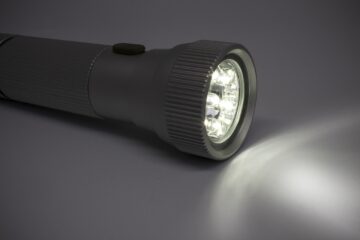It might sound like a bit of a cop out, but there is no one-size-fits-all answer to what the ultimate self-defence weapon is because it depends on various factors, including your personal preferences, skill level, and the specific self-defence situation. Different situations may require different tools or techniques. Here are some options commonly considered for self-defence:
- Personal Safety Training: The most effective self-defense tool is often proper training in personal safety and self-defense techniques. This includes learning how to assess situations, avoid conflicts, and physically defend yourself if necessary.
- Pepper Spray: Pepper spray is a non-lethal self-defense tool that can temporarily incapacitate an attacker by causing irritation and temporary blindness. It can be effective but should be used responsibly and legally.
- Tactical Flashlight: A high-powered flashlight with a strobe function can disorient an attacker and provide visibility in low-light situations.
- Personal Alarm: A loud personal alarm can attract attention and deter potential attackers.
- Self-Defense Keychain: Some keychains are designed with self-defense in mind, featuring sharp points or other defensive elements.
- Firearm: For those who are trained and legally allowed to carry one, a firearm can be an effective self-defense tool. However, it comes with significant responsibilities and risks.
- Taser or Stun Gun: These devices can incapacitate an attacker by delivering an electric shock, but they also have limitations and legal restrictions.
- Self-Defense Batons: Collapsible batons can be used to strike an attacker at close range and are used by some law enforcement agencies.
- Martial Arts and Self-Defense Weapons: Skills in martial arts or the use of traditional self-defense weapons like batons, knives, or martial arts weapons can be effective in the hands of a trained practitioner.
- Awareness and Avoidance: The best self-defense often involves being aware of your surroundings, avoiding potentially dangerous situations, and using de-escalation techniques to defuse conflicts before they turn physical.
Ultimately, the effectiveness of any self-defence tool or technique depends on your level of training, your ability to use it effectively under stress, and the specific circumstances you find yourself in. It’s essential to research and receive proper training if you plan to use any self-defence tool, and always prioritize personal safety and avoiding conflicts when possible. Additionally, be aware of the legal regulations surrounding self-defence in your jurisdiction.



0 Comments